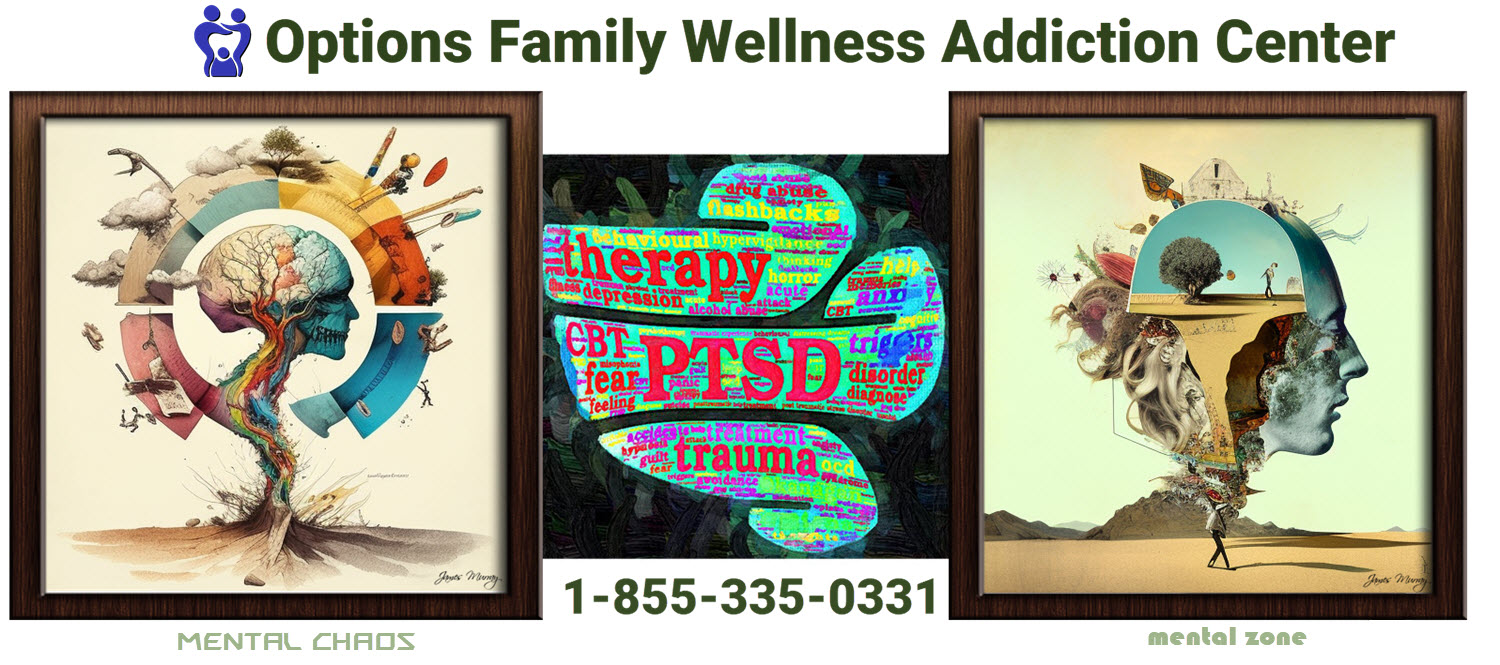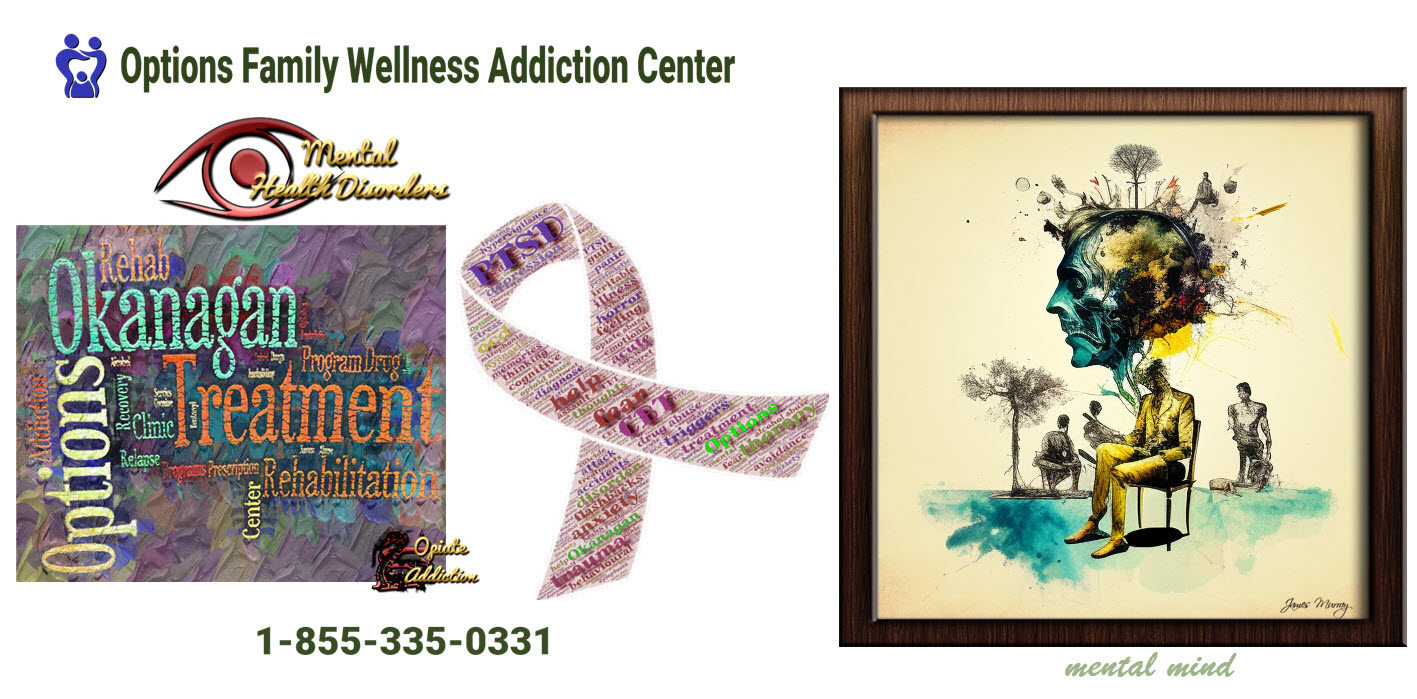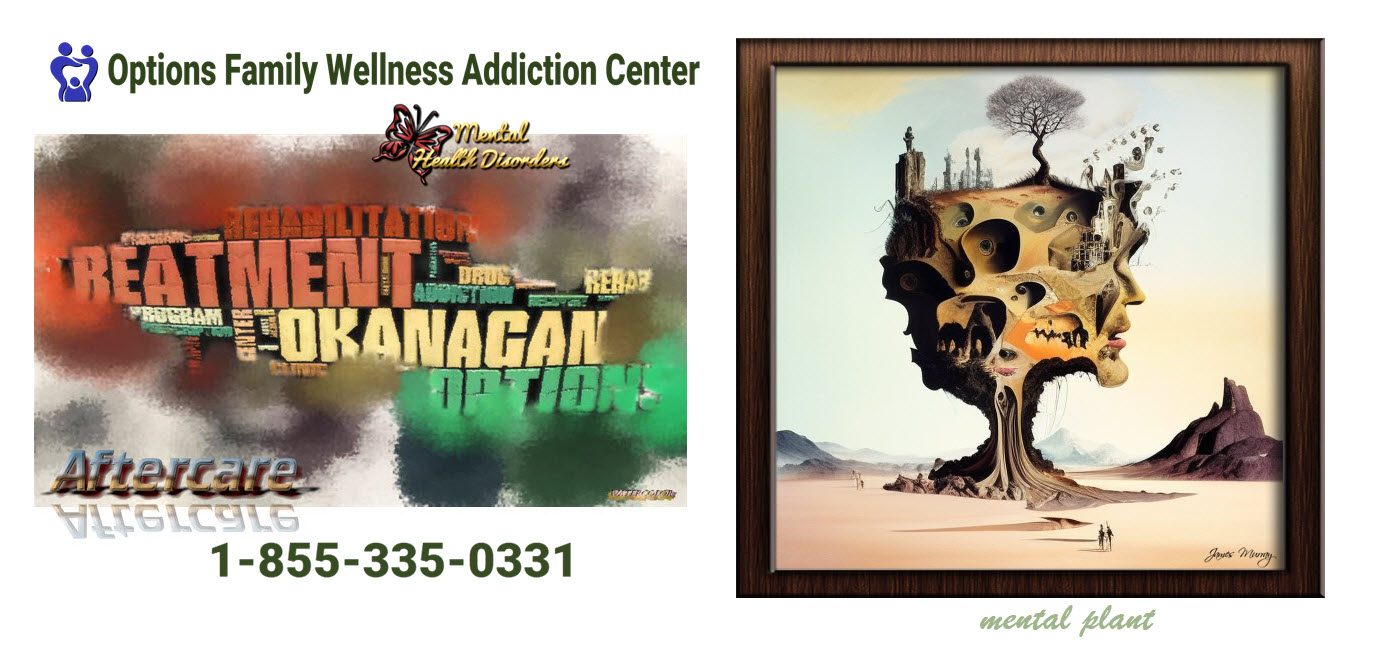Mental health disorders – [The Gift of Mental Health Poem] – Drug addiction treatment programs in Alberta and British Columbia – Options Family Wellness Addiction Center in Kelowna, British Columbia treating drug, prescription drugs, opioids, opiates, fentanyl, heroin, and alcohol addiction and recovery.
Drug Addiction Treatment Center In BC
Understanding Mental Health and Wellness: What You Need to Know
Mental health is an important aspect of an individual’s overall well-being. It is defined as a state or condition in which an individual feels a sense of well-being and has the capacity to live a fulfilling life in accordance with their available resources. Mental wellness also enables a person to be resilient to the stresses they encounter and respond to challenges without compromising their well-being. In addition, mental wellness makes individuals productive and beneficial to their communities.
Mental Health Disorder Programs In BC
Mental wellness can be defined as the absence of mental disorders or problems. Individuals who do not exhibit diagnosable behaviors that could qualify as a mental disorder are considered mentally healthy. However, when these behaviors become disruptive and lead to mental disorders such as obsessive-compulsive disorder (OCD), a diagnosis may be necessary.
When life throws its worst at me
And all I see is a darkened sea,
It’s hard to hold on to my sanity,
To feel good, happy, and healthy.
But when I learn to take care of my mind,
Nurture my soul and spirit in kind,
I find that I am stronger, more refined,
And to life’s twists and turns, more aligned.
Mental health is the greatest gift of all,
A treasure that stands through every fall,
A compass that guides me when I crawl,
And helps me rise, no matter how small.
So let us cherish this gift each day,
And nurture our minds in every way,
For mental health is the only way,
To live life to the fullest, come what may.
Mental wellness can also be seen as a positive element in an individual’s personality that enables them to enhance their mental health regardless of a diagnosable mental disorder. This definition includes an individual’s capacity to live life to the fullest, respond well to their environment through the conscious or unconscious use of coping mechanisms, and balance emotional and psychological well-being in relation to a constant flow of experiences.
It is important to note that there is no single definition for mental health across cultures. What is considered mentally healthy or acceptable behavior in one culture may be seen as eccentric in another. For instance, cannibalistic behavior in some remote tribes is regarded as a religious practice, but in most urbanized countries, it is considered barbaric or insane.
Abnormalities in mental health can lead to a number of problems with various representations. Some people with mental illnesses have aggressive behaviors, while others are withdrawn and lack social interest. Each type of disorder has its own signs and symptoms, and diagnosis and treatment vary depending on the nature of the mental health problem.
Several factors can disrupt mental health, including environment or upbringing, biological makeup, pre-programmed instructions in genes, medical disorders, traumatic experiences such as loss and abuse, and substance abuse. While one factor may be more dominant than the others, all of these are contributors to the development of the majority of mental health disorders. In some cases, a single factor may be sufficient to trigger the disorder, but the majority of disorders require an accumulation of experience that constantly challenges the well-being of a person.
The preservation of mental health is highly dependent on the individual’s capacity to blend in with their environment and handle its stresses, achieve a good internal balance in their personality that is sufficient to provide a stable character, and create a good perspective that limits the damage of negative experiences. For some people, a good support system, such as a sympathetic family or a strong social group, may work well to safeguard mental health.
Mental health is a critical component of an individual’s overall well-being. It is a state of being that enables individuals to live fulfilling lives and be productive members of society. Understanding mental wellness and the factors that can disrupt it can help individuals take proactive steps towards safeguarding their mental health.
FAQ:
Q: What is mental health?
A: Mental health refers to a state of being or condition in which an individual feels a sense of well-being, is resilient to cope with challenges, and is productive and fruitful.
Q: What is mental wellness?
A: Mental wellness refers to a lack of mental health problems or disorders.
Q: What are the factors that disrupt mental health?
A: The factors that disrupt mental health include environment or upbringing, biological makeup, genes, medical disorders, traumatic experiences, and substance abuse.
Q: What is the preservation of mental health dependent on?
A: The preservation of mental health is dependent on the capacity of the person to blend in with their environment, achieve a good internal balance in their personality, and create a positive perspective that limits the effects of negative experiences.
There are many authors and books that cover the topic of mental health and wellness, as it is a very broad and important subject. Here are a few examples of influential authors and books that may be of interest:
“An Unquiet Mind” by Kay Redfield Jamison: This memoir details the author’s struggles with bipolar disorder, and provides insight into the experience of living with a mental illness.
“Lost Connections” by Johann Hari: This book explores the root causes of depression and anxiety, and argues that social and environmental factors, rather than solely biological factors, play a major role in mental health.
“The Body Keeps the Score” by Bessel van der Kolk: This book examines the effects of trauma on the body and mind, and provides insights into the latest research on treatments for PTSD and other trauma-related disorders.
“Mindset” by Carol Dweck: This book explores the concept of a growth mindset, which is the belief that personal qualities can be developed through hard work and dedication. The book explains how adopting a growth mindset can lead to greater resilience and success in all areas of life, including mental health.
“The Power of Now” by Eckhart Tolle: This book explores the concept of mindfulness, which involves being fully present and aware in the moment. The author argues that by focusing on the present moment, individuals can reduce anxiety and stress, and achieve greater mental clarity and well-being.
Options Opiate and Alcohol Treatment Centers in Kelowna, British Columbia – Men and Women are recovering and healing from Alcohol and Drug Abuse at our addiction recovery center here in the Okanagan right now.
Our unique and distinctive Opiate Drug and Alcohol addiction recovery treatment program allow men and women to come in from Calgary as well as Edmonton as we offer airport pickup.
Numerous clients come to us from Vancouver, Calgary, and Edmonton and other locations in Alberta and even other provinces for Opiate addiction treatment, heroin drug treatment, many other drugs, and alcohol addictions for rehabilitation because of the uniqueness of our treatment center.
Options Drug and Opiate Addiction Recovery Center
551 Sherrydale Crescent, Kelowna, British Columbia, V1V 2E6
Toll-Free Phone Number: 1-855-335-0331




